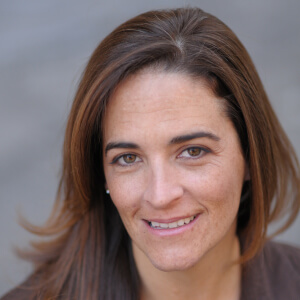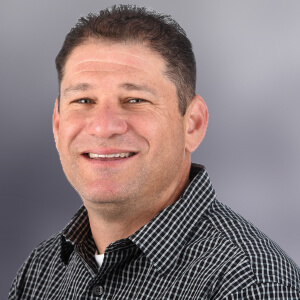Occupational therapy can make all the difference in Duchenne muscular dystrophy
Occupational therapy for Duchenne muscular dystrophy is unique and requires specific knowledge of the disorder to provide appropriate treatment. It is important that the occupational therapist has an understanding of Duchenne and the complexities of the disease, otherwise they risk increasing muscle fatigue and causing harm to the individual.
CureDuchenne Occupational Therapy Program
CureDuchenne offers a high level program of educational opportunities and resources for occupational therapists and allied healthcare professionals who treat those with Duchenne muscular dystrophy. Our goal is to help improve the lives of those living with Duchenne by advancing the knowledge of those who are treating them.
CureDuchenne Certified Occupational Therapists will receive training on the most current standards of care. Skills will be maintained through ongoing interaction with the CureDuchenne Professional Development Department and annual recertification requirements. The network of CureDuchenne Certified Occupational Therapists will have the resources they need to provide the best standard of care to their patients. The Duchenne community will have access to quality care with designated CureDuchenne Certified Occupational Therapists in their area.
CureDuchenne Certified Occupational Therapists will:
- Receive ongoing training from the CureDuchenne Professional Development Department
- Receive patient referrals from CureDuchenne
- Be designated as Certified on www.CureDuchenne.org which families regularly access
- Be recognized by patients and health care professionals as a uniquely qualified provider
- Display the CureDuchenne Certified Occupational Therapist seal for their site, email signature, and materials to demonstrate certification
- Be part of a large network of therapists – for collaboration and consultation
- Be introduced to new families and other local Cure Duchenne Certified Physical Therapists
- Receive notifications of upcoming conferences and courses of interest
CureDuchenne Certified Occupational Therapist Certification Process and Requirements
Course and Exam
- Complete online or in-person “Duchenne Muscular Dystrophy: Current understanding and treatment” course
- Pay $50 fee for Certification application
- Read research materials provided by CureDuchenne
- Pass Certification exam with 80% accuracy or better
Required Document Submissions
- Submit resume and/or curriculum vitae
- Proof of state licensure and in good standing
- Proof of liability insurance (for clinic owners and independent contractors)
- Statement of Duchenne experience, current status and goals for increasing breadth of treatment for Duchenne and outreach to Duchenne community
Annual Recertification Requirements
The following list constitutes the minimum standard to maintain the designation of CureDuchenne Certified Occupational Therapist annually.
- Records: Notify CureDuchenne of any updates to contact information and current status of PT license
- Webinars: Each Certified OT will be required to attend 2 of the 4 webinars per calendar year.
- Research articles: Each Certified Occupational Therapist® will be required to read 2 of the 4 research articles that are sent and submit answers to the quiz questions within allotted timeframe provided by CureDuchenne .
For more information contact Education@CureDuchenne.org
CureDuchenne offers two distinct opportunities for occupational therapists and other allied healthcare providers to receive up-to-date continuing education. Live courses are in person and held throughout the United States each year. The online version of this course holds all of the valuable information and can be taken at your own pace in any location.
If you have specific questions about treating patients with Duchenne muscular dystrophy, please contact our Professional Development team.

Jennifer Wallace Valdes, PT, draws from experience in pediatrics since 2002 with an emphasis in the muscular dystrophy population. She has been invited to present at Duchenne conferences and the Academy of Pediatric PT Annual conference, and has taught continuing education to healthcare professionals since 2009. She is the owner of Duchenne Therapy Network. She continues to practice and provide evaluation, treatment and consultations for those with Duchenne and Becker muscular dystrophy.
Contact: jennifer@cureduchenne.org

Doug Levine, PT, is the owner of Growing Places Therapy Services, PLLC. A physical therapist since 1997, he has primarily focused on pediatrics and Duchenne muscular dystrophy. Since 2006, Growing Places has served over 500 children and their families, providing pediatric physical, occupational and speech therapies in the home, school and daycare settings.
Contact: doug@cureduchenne.org
Occupational therapists work with individuals to use common occupations, such as play, self-care, leisure, social, or education activities, in a therapeutic manner to improve functional independence.
-The main occupations for babies and young children include playing, interacting with other children and caregivers, and learning. OTs work on these occupations by facilitating developmental milestones such as rolling, sitting, reaching, grasping, crawling, visual tracking, feeding, following directions, playing with toys, working on age-appropriate self-care, sensory self-regulation, and social participation.
-The occupations for older children and adolescents include education, engagement in social relationships, and transitioning into adulthood.
A referral for OT must come from your doctor, either the pediatrician/primary care physician or the neurologist/neuromuscular specialist. Once the referral is obtained, the occupational therapist will complete an evaluation and develop goals and a plan of care. Please make sure to let your goals of therapy known during the initial evaluation. Depending on the type of insurance, the evaluation will be sent off to obtain authorization or benefits will be verified before ongoing visits can begin.
OTs work with the client and their family to determine the goals for therapy. Occupational therapists don’t treat the disease itself, but rather the impairments that result from the disease. However, it is important that the therapist has an understanding of Duchenne and the complexities of the disease, otherwise they risk increasing muscle fatigue and causing harm.
In early childhood, you might seek out OT if your child is having difficulty completing self-care tasks, such as getting dressed, brushing his teeth, or toileting. Some children with Duchenne have difficulty with sensory processing which results in extreme response or lack of response to different sounds, textures, smells, visual input, or movement. Occupational therapy can help your child lean to process sensory input and manage the resulting behaviors. Another indication to seek OT is some children may also have difficulty with cognition resulting in difficulty at school.
Yes! OT can continue to assist into adulthood using modifications and adaptations for participation in these activities as well as helping with transitioning into higher education, living arrangements or the workforce to improve overall independence.
It is important to remember that occupational therapy is indicated throughout the life of individuals with Duchenne and Becker, but this should be accomplished in phases often referred to as “episodes”. This means that he will receive a period of therapy followed by a break. Skills learned in therapy should continue to be practiced throughout the break. Therapy should be sought out when new issues arise.

Become a CureDuchenne Certified Occupational Therapist and have a direct and personal impact on the lives of people living with Duchenne.
Make an Impact
You can advance the care, treatment and cure for Duchenne muscular dystrophy. Contributions in any amount can truly make a difference and can be credited to a fundraiser or event from the list below.
Donate